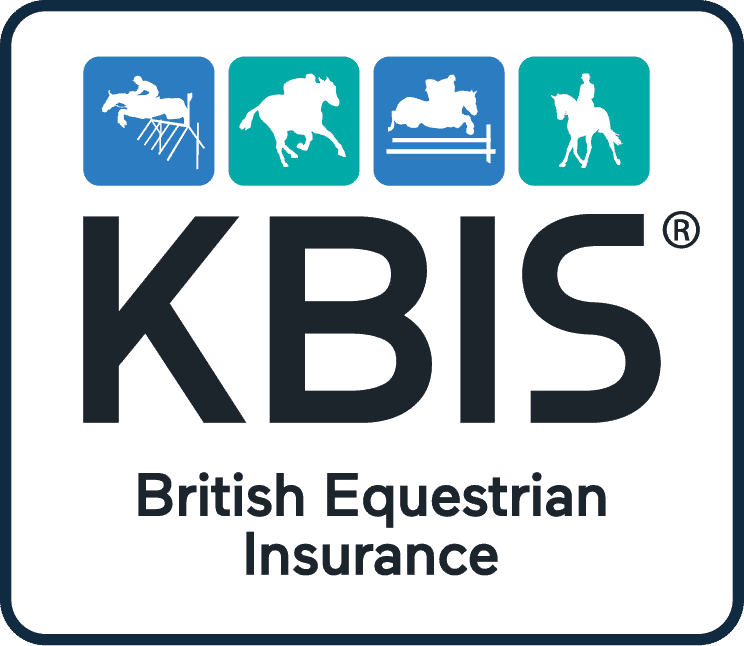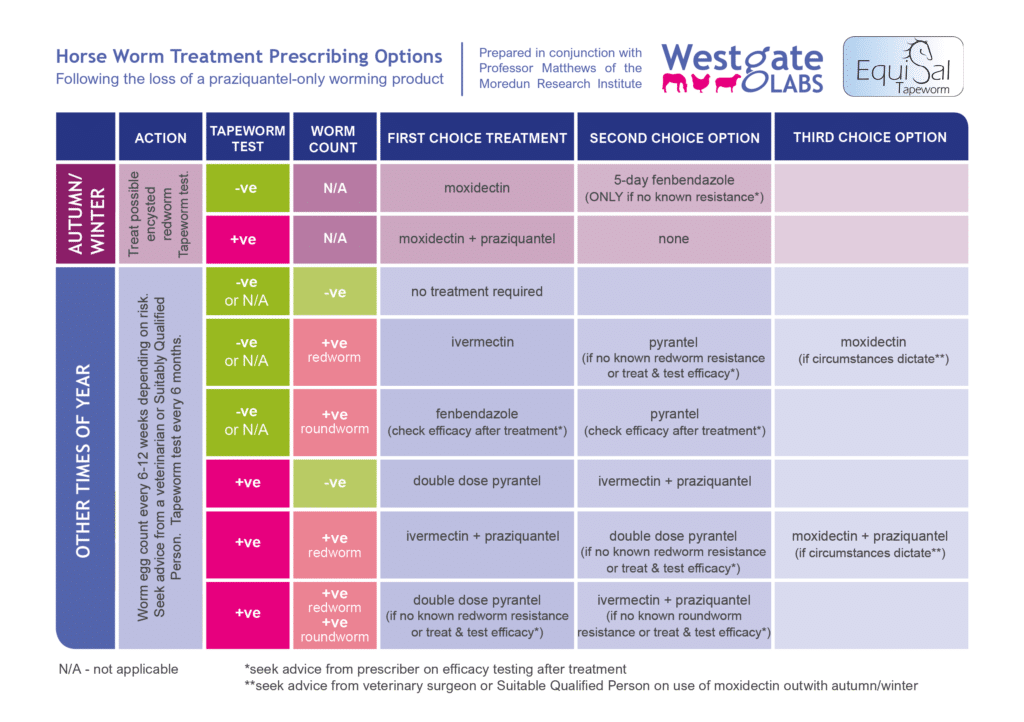Horse health professionals rally to determine best practice as “Equitape” horse wormer to be discontinued from October 2018.
From October 2018 the wormer brand, Equitape®, commonly used to treat tapeworm infection will be discontinued from sale in the UK. This wormer is the only licenced product for horses containing praziquantel as a single active ingredient. Going forward, it will only be available in ‘combination wormers’ also containing either ivermectin or moxidectin, the drugs most commonly used to treat small and large redworm (strongyles). Equitape’s removal from the portfolio of veterinary medicines available to target specific worm infection presents a challenge to prescribers and horse owners alike.
Two leading laboratories; Westgate Labs, postal worm count specialists, and Austin Davis Biologics, manufacturers of the innovative EquiSal Tapeworm test, are responding to this news to stress the increasing importance of evidence-based control in managing worm burdens in horses. In partnership with Professor Jacqui Matthews FRCVS, Moredun Research Institute, they have set out to develop best practice advice to minimise the impact on sustainable worm control.
Professor Matthews commented: “I think it’s an issue that limits prescribers’ options for worm species-targeted treatments. Wormer resistance is a growing problem and has the potential to become a major horse welfare threat. Losing the option of a praziquantel-only product means that any treatment option for tapeworm infection will now also impact redworms, whether required or not. Frequent drug exposure speeds the development of resistance and, over time, has potential to significantly decrease the effectiveness of the few chemicals that we have to treat life-threatening worm burdens in horses.
“To guard against this, we must become more strategic with parasite control. This means seeking tailor-made solutions for worm control based on knowledge of management, infection risk, drug sensitivity and, importantly, robust diagnostic tests.”
Evidence based control
Regular testing should form the centre of any programme to determine whether or not a worming treatment is required to keep drug exposure to a minimum. Worm egg counts should be conducted every two-three months (with frequency depending on risk) and tapeworm tests performed every six months to monitor infection levels in healthy adult horses.
Lester & Matthews (2013) identified that: “Faecal egg counts can be used to identify the likely 15-20% of horses that need worming to reduce worm egg shedding and can reduce wormer use by up to 82%”. EquiSal Tapeworm test data shows that fewer than 27% of horses tested require treatment for tapeworm (Austin Davis Biologics) and Lightbody et al (2017) demonstrated that using EquiSal Tapeworm in a targeted worm control programme reduced the use of tapeworm wormers by 86%.
The exception to evidence-based control is treatment with moxidectin late autumn/winter dose to target encysted redworm and large redworm larvae, which can’t be detected using worm egg count methods.
Consultant vet to Westgate Labs, Carolyn Cummins MVB PhD MRCVS commented: “With reduced specificity of treatment options, we are concerned that the temptation could be to treat more and test less. However with resistance rising, the only way of identifying problems is by testing routinely, together with resistance testing, to build up a picture of what’s going on. Giving a wormer without understanding the worm burden present or without being aware of the efficacy of the wormer you’re using is a false economy for your horse’s health.”
What does this mean in practice?
Testing for tapeworm prior to the annual treatment for encysted redworm in late autumn/winter is an easy win. This will help to decide whether a moxidectin only (or where there is no resistance known, a 5-day fenbendazole) treatment is required, or if a moxidectin + praziquantel combination wormer is advised to include treatment for tapeworm at the same time.
At other times of year where it has been confirmed that treatment for tapeworm is needed, a worm egg count should be conducted. If treatment for redworm is indicated at the same time, then an ivermectin + praziquantel combination wormer should be the first choice.
Alternatively, a double dose of pyrantel can be recommended for administration if;
- the treatment is for tapeworm only
or - ascarids are also present (more likely in foals or yearlings)
or - the redworm population in question is known to not be resistant to pyrantel.
Reducing reliance on chemicals
Professor Matthews commented, “Wherever possible, we must look to reduce infection risk and break the lifecycle of the worms without overly relying on wormers. Best practice control should include the following; strategic treatments, targeted (diagnostic test led) treatments, annual tests for wormer resistance, good pasture hygiene such as poo picking and implementing appropriate quarantine procedures for new horses.”
For more information please visit www.westgatelabs.co.uk or www.equisal.co.uk or www.moredun.org.uk/research/diseases/parasitic-roundworms-equine.
Westgate Labs and Austin Davis Biologics are independent laboratories and do not sell wormers, they are diagnostic service providers and provide expert evidence-based control advice.
References
Lester, H., Matthews, J.(2013) Equine Vet. J. 46, 139e145.
Lightbody, K. L. et al (2017) Equine Vet J, 50: 213-219.
Photo Credit Jon Stroud


